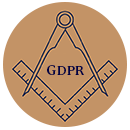Are Freemasons expected to give preference to fellow members?
Certainly not. This would be unacceptable and may lead to disciplinary action being taken against those involved. On joining, each new member states that he expects no material gain from membership.
Are there women Freemasons?
Yes. Women Freemasons have two separate Grand Lodges in the UK. These bodies follow the same structure as their male counterparts but admit only women.
The Honourable Fraternity of Ancient Freemasons has lodges in England, Wales and overseas. The Order of Women Freemasons also has lodges in Scotland.
Neither body is recognized by the Grand Lodge of Scotland – inter-visitation is not permitted.
Can anyone become a Freemason?
Yes – Freemasonry is open to people from all walks of life, regardless of their race, religion, sexual orientation or socio-economic position in society.
To become a member under a ‘regular’ Grand Lodge, such as the Grand Lodge of Scotland, an applicant must however be male, and express a belief in a Supreme Being.
Does Freemasonry accept Roman Catholics?
Yes. There are many freemasons who are Roman Catholic.
How many Degrees are there in Freemasonry?
Scottish Craft Freemasonry practices the following:
- Entered Apprentice
- Fellow Craft (including the Mark Degree)
- Master Mason
- The Ceremony of Installed Master
How many Freemasons are there?
There are around 30,000 freemasons operating under the Grand Lodge of Scotland, 25,000 under the Grand Lodge of Ireland, and around 200,000 under the United Grand Lodge of England.
There are around six million freemasons in ‘regular’ Grand Lodges around the world.
If Masonry is so above-board, why is it 'secret'?
There are fewer secrets to Freemasonry than most non-members imagine; even many Masons are not entirely clear on what is and is not secret in Masonry. The moral principles of Masonry are the same as those taught to you in Sunday school or at your mother’s knee (sometimes over it!); it is only the exact procedures and words by which those principles are taught in Masonry that are secret, it is the knowledge of those that distinguish a Mason from those who are not members. To be entitled to the fellowship peculiar to the Lodge, a Mason must be able to identify himself, and these secrets provide the means for doing so.
A better term than secrecy would be privacy. Masonry is not a public organization like a town council. It is an association of private citizens, just like a golf club or a church. No one except members has a right to know about the internal workings of any of these things. They are private to the group, not ‘secret’.
Is Freemasonry a cult?
That depends on what is meant by ‘cult’. By some definitions, Christianity, Islam, and Judaism are cults. By another definition, golfing, bowling, and surfing the Internet are cults. But in the usual use of the term, referring to a group that separates itself from society and its members from their non-member friends, demands slavish obedience from its adherents, engages in brainwashing techniques, confiscates their resources, and sees itself in opposition to established society, absolutely not!
Quite the opposite, in fact: Masonry does not recruit members, does not compel attendance at any of its meetings, charges modest dues and fees (some little changed for years), encourages community service and participation in civic and religious organisations, and allows any member to quit (demit) at any time (providing he has no outstanding financial obligations; otherwise, he is liable to be suspended, but in either case, he would no longer be a member). It is easier to get out of Masonry than it is to get into it!
Is Freemasonry a religion?
No, Freemasonry is not a religion. Masons who treat it as such are mistaken. Freemasonry strongly encourages its members to belong to an established religion, although that is not a requirement for membership (only that a candidate professes a belief in a Supreme Being). Masonry is a fraternal organisation that encourages morality, charity, and studies philosophy. It has no clergy, no sacraments, and does not promise salvation to its members.
But what about terms like ‘Temple’, ‘Worshipful’, and so on?
A museum may be called the Temple of Fine Arts. This does not mean that they are religious institutions. The same is true of Freemasonry. (Masonic buildings are also called Lodge Halls and Masonic Centres as well as Masonic Temples.)
The term ‘worshipful’ stems from 18th-century usage when Freemasonry in its present form was being organised. The term has nothing to do with religious worship but is an old synonym for ‘honorable’ or ‘respected’.
Similarly, Freemasons engage in group prayer and have a chaplain, just as do the armed services; that does not make Masonry into a religion.
Is Freemasonry an international order?
Freemasonry exists throughout the world. However, each Grand Lodge is sovereign and independent. There is no international governing body for Freemasonry.
What charities do Freemasons support?
Whilst there are Masonic charities that cater specifically, but not exclusively, for Masons or their dependants, Freemason lodges also make significant donations to non-Masonic organizations.
What happens at Masonic Meetings?
Meetings, which like those of other groups, are open only to members, is normally in two parts. First, there are normal administrative procedures such as:
- Minute of the previous meeting.
- Proposing and balloting for new members.
- Discussing and voting on the annual accounts.
- Masonic news and correspondence.
- News about charitable work.
Second, there are the ceremonies for:
- Admitting and advancing new members.
- The annual installation of the Master of the Lodge and his office-bearers.
What is Freemasonry’s relationship with politics?
Freemasonry, as a body, will never express a view on politics or state policy. The discussion of politics by members, in their capacity as a freemason, has always been prohibited.
What is Freemasonry’s relationship with religion?
All Freemasons are expected to have a belief in a Supreme Being, Freemasonry does not seek to replace a Mason’s religion or provide a substitute for it.
It deals in a man’s relationship with his fellow man not in a man’s relationship with his God.
Why do Freemasons take Obligations / Oaths?
New members make solemn promises concerning their behavior both in the Lodge and in society. Members also promise to keep confidential the way they recognise each other when visiting another Lodge. Freemasons also commit to supporting others in times of need but only so far as it does not conflict with their family and public obligations.
Why do you wear regalia?
Wearing regalia is historic and symbolic. Like a uniform, the regalia indicates the rank of the wearer in the organisation.


